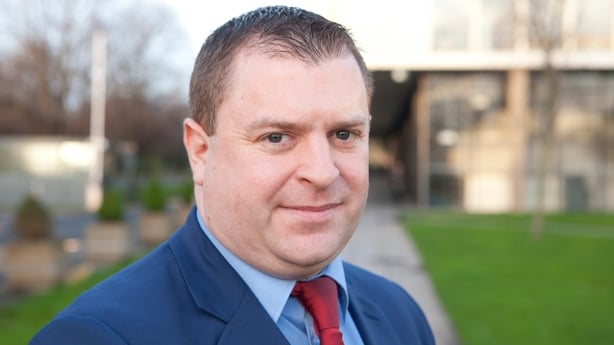Now that Election 2016 is upon us, Conor McMorrow of RTÉ's Political Staff looks at the positives and the negatives for the Government as it seeks re-election.
Positives
#1
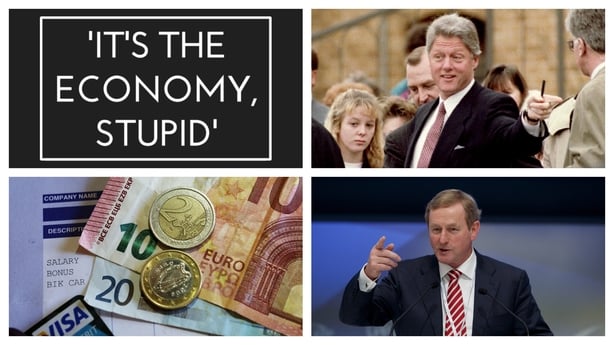
It may be 24 years since "It's the economy, stupid" became a mantra for Bill Clinton's 1992 US Presidential campaign but it still rings true for the Fine Gael/Labour Government in 2016.
The Coalition parties are building their election campaigns on the premise that they "sent the Troika home" and all the economic indicators show the economy is now growing beyond expectations.
Expect to hear a lot more about this as the government parties hammer home their message that the electorate now have to choose between "stability" and "chaos".
#2
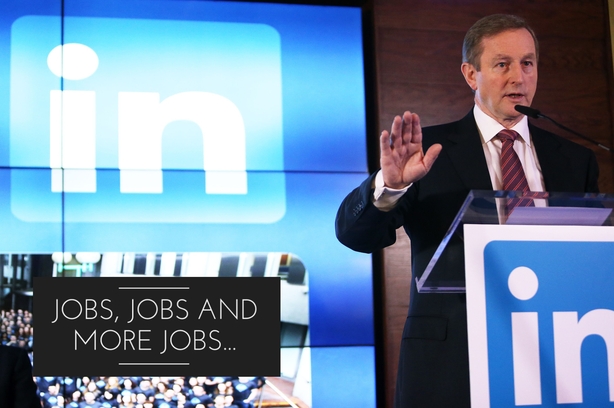
It was said of 'Iar-Taoiseach' Bertie Ahern that he would perform the official opening of a packet of crisps.
Taoiseach Enda Kenny and his ministerial colleagues would be proud to have their names associated with a similar penchant. This time it is for job announcements.
It has become a daily occurrence for ministers to appear at jobs announcements (and re-announcements).
After the economic crash, where the unemployment rate peaked at over 15%, the Government has managed to get unemployment figures below the key 10% mark. Expect to hear the jobs message over and over during the campaign.
#3
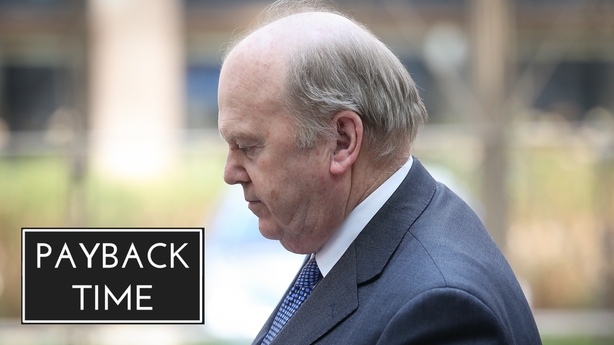
Budget 2016 was not quite a "Charlie McCreevy tribute budget" but Michael Noonan clearly had one eye on the election while drafting it.
After years of hardship throughout the bust, the Government is moving towards paying some money back through cuts to the Universal Social Charge; restoration of the Christmas bonus for social welfare recipients; and increases in the old age pension and child benefit.
Promises of extra gardaí and free GP care up to the age of 12 were among the other measures announced on Budget day that should gain electoral capital.
#4
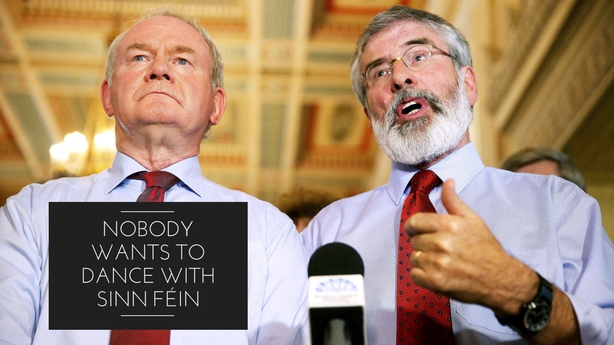
In September 2014, Michael Noonan told the Dáil what he thought of Sinn Féin's "red line" issues for entering government. These include an abolition of property tax and water charges.
He said: "Nobody is rushing to join you in government. Putting down a red line issue is like an oul fella walking up and down the boundaries of the ballroom of romance saying he won't dance with any of those women over there. Nobody wants to dance with him!"
Nobody wants to dance with Sinn Féin. And Fianna Fáil has ruled out going into government with Sinn Féin or Fine Gael. The perennial issue of the inability of the Left to join together in one bloc remains.
All of this can be perceived as the Opposition offering no coherent alternative government and feeds into the Fine Gael/Labour message of "stability versus chaos".
#5
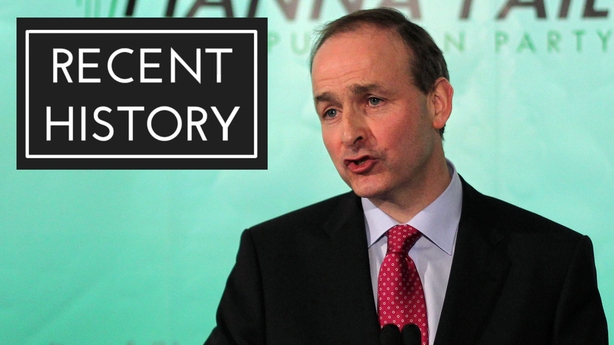
During a robust Leaders' Questions debate on 24 November, Taoiseach Enda Kenny made a pointed attack on the Fianna Fáil leader.
He said: "Deputy Micheál Martin is the last remaining political link to an economic catastrophe perpetrated on this country and all of our people by his party. He was centrally involved in it."
The Taoiseach has never been shy about reminding Fianna Fáil of its recent history. Expect this message to be repeated again and again in the campaign. It will resonate with some voters.
#6
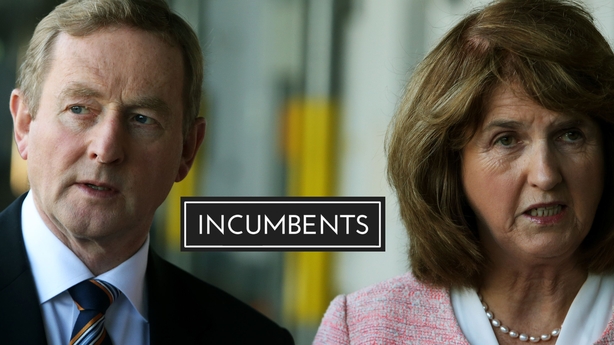
Last time around Fine Gael won 76 seats and Labour won 37 seats in the 2011 election. Labour has had its difficulties since "the Gilmore Gale" but Fine Gael departs Leinster House on the campaign trail in 2016 with a large swathe of TDs who will be seeking re-election.
Incumbents have the advantage of name recognition and a bank of constituency work over the last five years.
This has to count when battling it out for seats against first-time candidates.
#7
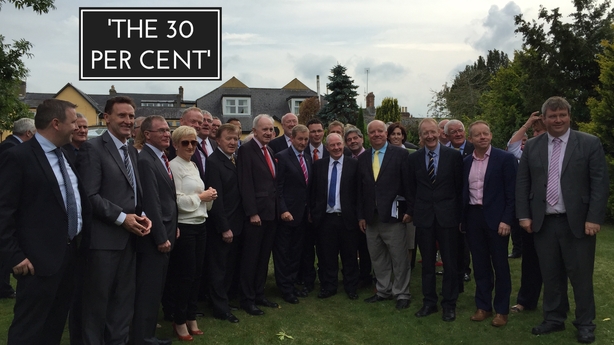
In recent months Fine Gael has hit 30% in a number of opinion polls. This 30% is seen as an important watershed for the party.
One Fine Gael minister privately said his party will build on this momentum and added: "We will gain at least another five percentage points in a campaign."
#8
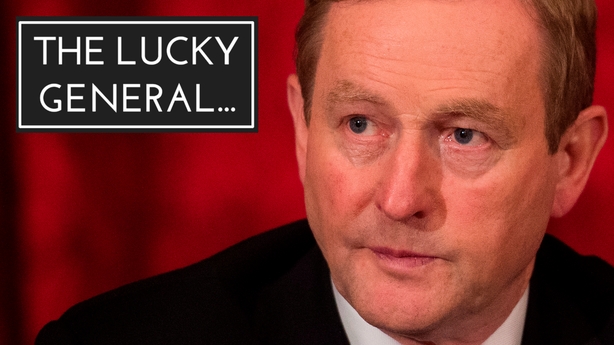
Imagine this...
Fine Gael leader Enda Kenny beats Taoiseach Bertie Ahern in the televised Leaders' Debate in 2007. Mr Ahern has won two general elections in 1997 and 2002 with Fianna Fáil but the electorate have had enough of him, and Fine Gael gain power.
After winning the 2007 election, Taoiseach Enda Kenny is only in office for little over a year when the economy collapses.
Fine Gael is blamed and the government collapses before Mr Ahern's Fianna Fáil is returned to power...
Things could have been so different for Enda Kenny had he won the 2007 election. But he is a lucky general. Who is to say this will change now?
#9
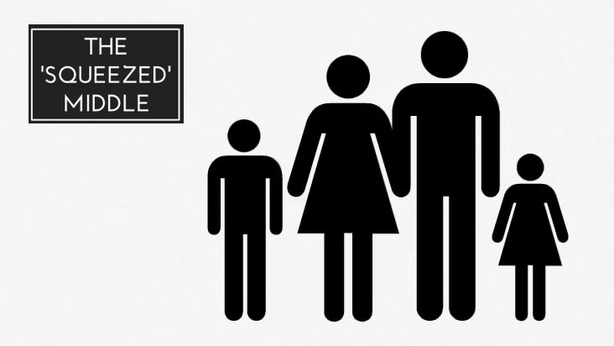
Reductions to the hated Universal Social Charge in Budget 2016, coupled with the promise of its abolition, have been one of the measures taken to loosen the noose around "the squeezed middle".
The Government will hope that free pre-school childcare for children from three until they start primary school and a pledge that 2,200 new teachers will be hired to reduce the pupil-teacher ratios will be welcomed by this demographic of voters.
#10
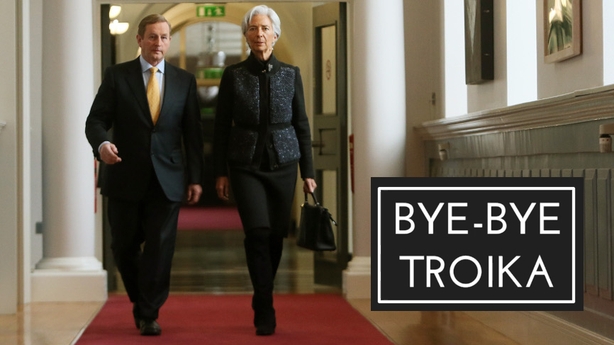
At last year's Fine Gael party conference in Castlebar, Taoiseach Enda Kenny reminded everyone that "the bailout is over. The Troika has gone home".
He then paraphrased Michael Collins during the Treaty negotiations: "Give us the future. We've had enough of our past. Give us back our country, to live in, to grow in, to love."
Expect Fine Gael and Labour to (repeatedly) remind us who sent the Troika home during the campaign.
#11
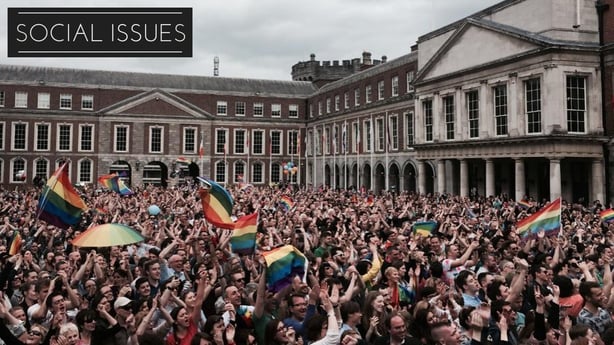
In assessing the Labour Party's achievements in office, one has to look to social issues such as marriage equality.
The party was supporting gay marriage long before it became fashionable or acceptable to do so.
Last May's historic vote was in no small part down to the progressive attitude of Eamon Gilmore in getting the issue included in the 2011 Programme for Government.
Another standout moment in the life of the 31st Dáil was the Taoiseach's apology to the women who spent time in Magdalene Laundries.
While the issue of the Repeal of the Eighth amendment will hang over the next Dáil, the current one has made progress on some social issues.
Negatives
#1
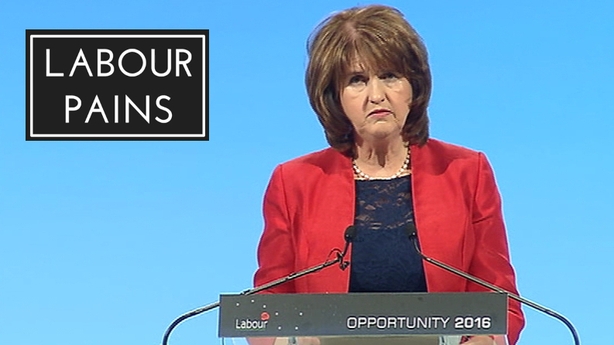
As the 32nd Dáil will have 158 seats (eight fewer seats than the 166 in the 2011-2016 Dáil), this means 79 is the magic number for forming a government.
No party has any realistic hopes of winning 79 seats on its own, so a coalition partner is needed.
Fine Gael is sitting at around 30% in opinion polls and this bodes well for the General Election.
The same cannot be said of its coalition partner.
The Labour Party won 37 seats last time around but if opinion polls and by-election results are replicated, a lot of its TDs will not be returned.
Optimists in the party hope that it can deliver more than a 10% share of the vote in the election – 10% is also the party's historical average in general elections.
The party secured a 7% share of the vote in last year's local elections leading to scores of seat losses.
In the five Dáil by-elections in the past three years, Labour has polled between 5% and 10%.
Party apparatchiks continue to say that election day will not be as bad as the opinion polls, by-election and local election results.
The party will use the election to point to its role in guiding Ireland away from the rocks during the biggest economic storm in our history.
But will the electorate see it that way?
#2
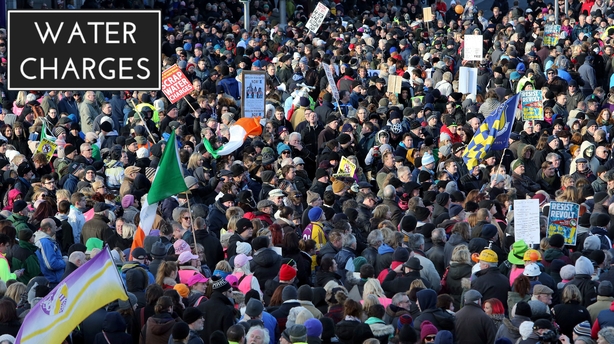
The most contentious issue in the life of the Fine Gael/Labour government has been water charges.
The Government's attempts to shake off the dark shadow of the Irish Water debacle has had varying degrees of success.
While the mass protests are not as visible and public anger appears to have dissipated, the water debacle will remain a salient issue in the Election 2016 campaign.
It will be the first time some Government TDs have knocked on doors in five years so there could be a backlash from some irate voters.
#3
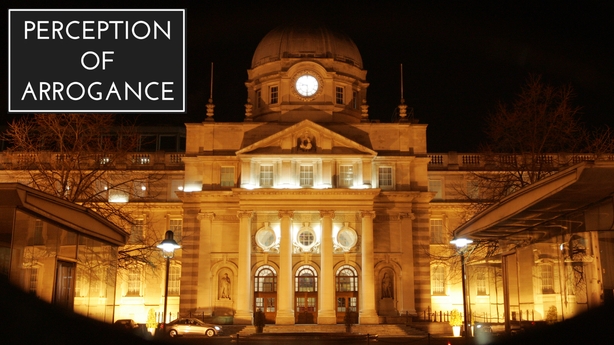
In hammering home its "stability versus chaos" message in Election 2016, the Government needs to be careful not to overplay it.
All the economic data points to economic growth, but the reality for a lot of people is that the recovery has yet to spread widely outside the M50 and the major cities.
The large swathes of people who have not felt the recovery may resent being told about it by Fine Gael and Labour when polling day comes.
#4
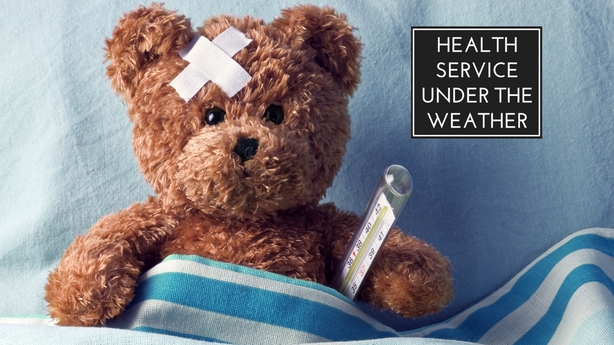
On 13 December, HSE Chief Executive Tony O'Brien came out with the stunning admission in The Sunday Business Post that there is no clear national plan for the health service in Ireland.
He also said that a lack of clear financial planning is preventing him from making medium and long-term decisions, and that the HSE has been "living under a death sentence" for years.
The Fine Gael/Labour coalition has had two health ministers – James Reilly and Leo Varadkar.
But the Opposition will attack the Government for ditching its much-talked about "Dutch model" health service and continuing with what they will portray as more of the same.
#5
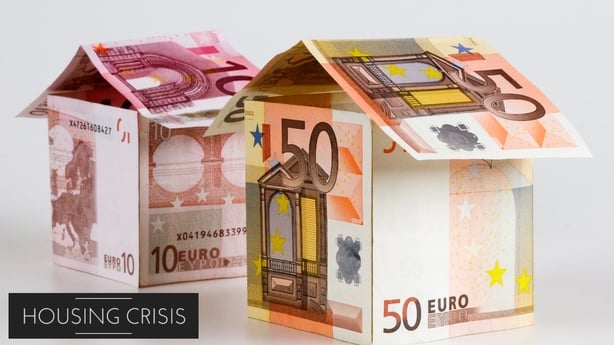
A major shortfall in the supply of new homes is hampering the residential property market.
As rents continue to rise, people are being forced out of their homes.
The domestic news agenda was dominated by stories of homelessness throughout 2015.
Minister for the Environment Alan Kelly has consistently said that fixing the housing crisis is a priority for the Government.
For as long as homeless people die on the streets and children grow up in hotel accommodation, the housing crisis will be an election issue.
Other familiar issues such as rural crime, NAMA and repeal of the Eighth Amendment will also feature.
#6
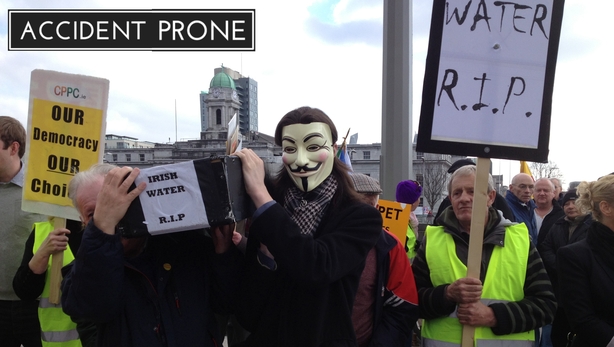
Any assessment of the Government's performance after the departure of the Troika shows how it was accident prone.
From the various Garda scandals, to the ongoing Irish Water debacle, to the accusations of cronyism over the John McNulty affair, there was a period where the Government looked vulnerable and extremely fragile.
Expect episodes such as these to be raked up again during the election campaign.
#7
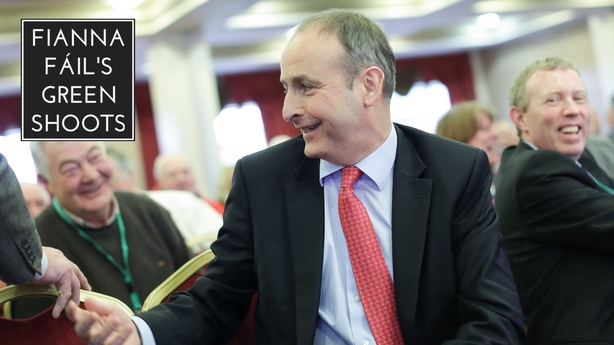
During the 2011 general election, Fine Gael's Phil Hogan famously asked the "decent" people of Fianna Fáil to "loan their vote" to Fine Gael.
The local elections in 2014 show that those Fianna Fáilers may have started to migrate home as the party won the most council seats with a 25% share of the vote.
Successive opinion polls put Fianna Fáil just below 20% which is not exactly setting the world on fire.
But the party is less "transfer-toxic" than it was in 2011 and this should convert into extra Dáil seats – perhaps at the Government's expense.
#8
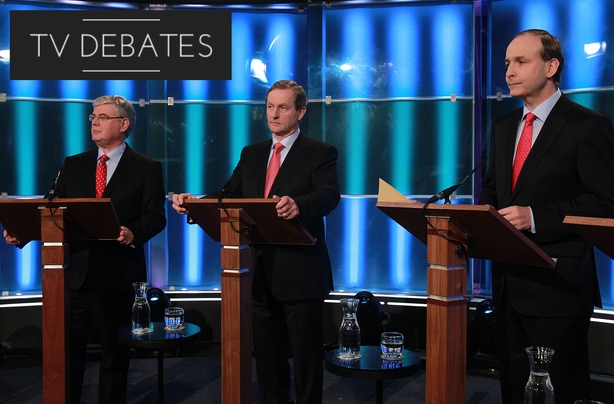
It is a media obsession in Irish election terms.
The media and Opposition scorn Enda Kenny for his perceived reluctance to publicly debate with Opposition party leaders on television during the campaign.
His handlers refute this, however, and the Taoiseach will participate in a TV debate with his opposite numbers.
This is seen as his Achilles heel. He is largely perceived to have lost the 2007 leaders' debate against Bertie Ahern.
He looks well poised to be the first Fine Gael Taoiseach to lead his party to consecutive general election victories, but there is a worry (although not as big as it used to be) that he could lose some ground in a TV debate.
#9
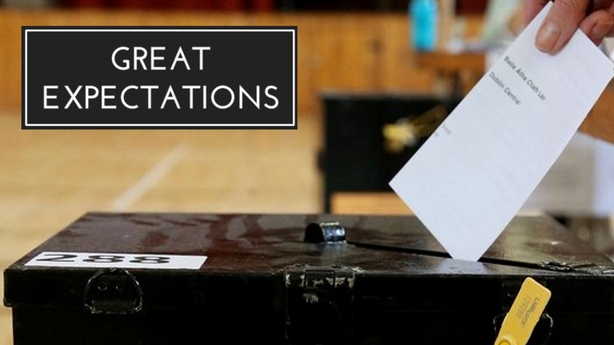
Much has been made of the decision to schedule polling day after people get their January pay packets –- in the hope that the electorate will thank the Government.
It is also possible that people will be less than enthused by the extra few euro and astound the Government with their ingratitude.
#10
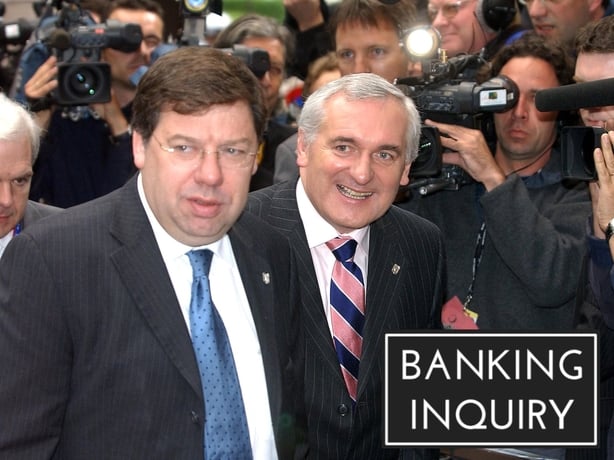
Much ado about nothing? There was some excitement at the outset of the banking inquiry, that it offered the prospect of seeing key players such as former Taoisigh Brian Cowen and Bertie Ahern explain themselves.
But this quickly fizzled out. Views differ as to whether it amounted to a political show trial, or a toothless inquiry that was doomed from day one.
The fact it cost €5 million of taxpayers' money is something the Government would rather not be reminded about during the campaign.
#11
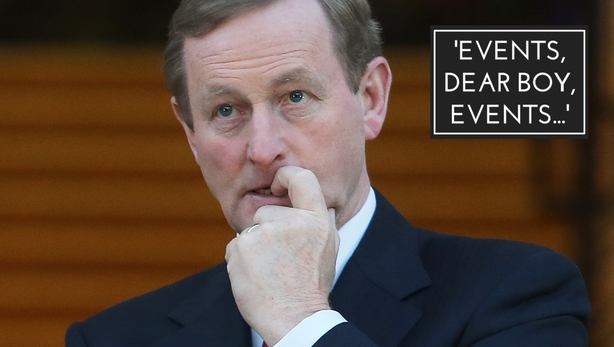
The line "events, dear boy, events" is attributed to British prime minister Harold Macmillan as a response to a journalist when asked what is most likely to blow a government off course.
Something unknown could pop up before polling day that will damage the Government.
Those who believe Enda Kenny should have gone to the country in November fear such "events".
By Conor McMorrow, RTÉ's Political Staff
